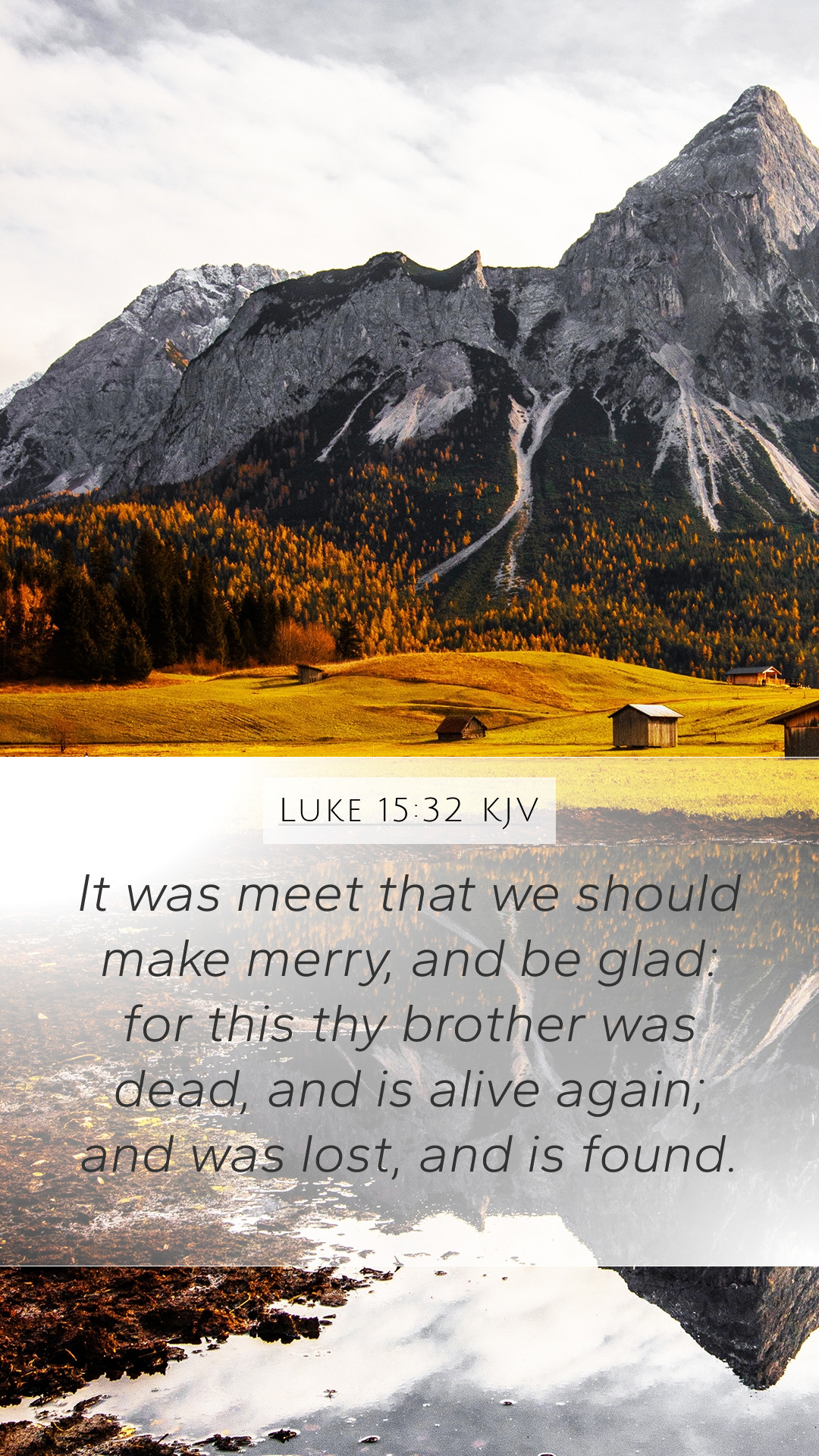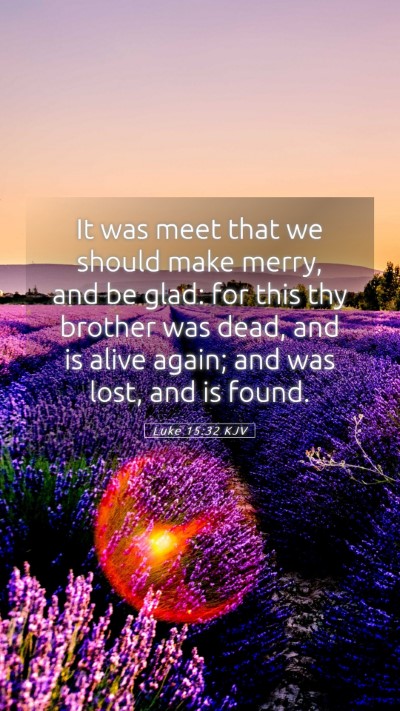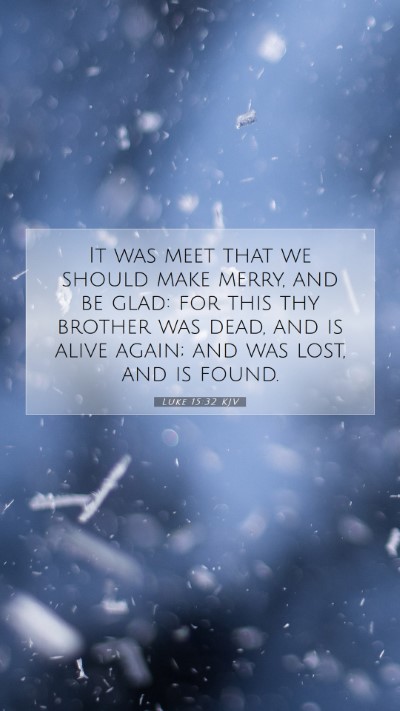Understanding Luke 15:32
Luke 15:32 states:
"It was meet that we should make merry, and be glad: for this thy brother was dead, and is alive again; and was lost, and is found."
Meaning of Luke 15:32
This verse comes at the conclusion of the Parable of the Prodigal Son, one of the most well-known parables of Jesus. It reveals profound truths about forgiveness, grace, and the celebration of redemption.
Contextual Overview
To understand the full meaning of Luke 15:32, one must consider the broader context of the parable, which depicts a father receiving his wayward son back home after he wasted his inheritance. The father's joy and the disdain of the elder brother articulate the dynamics of acceptance and rivalry within families, particularly in spiritual contexts.
Bible Verse Commentary
-
Matthew Henry’s Commentary:
Henry emphasizes the father’s joy in the restoration of his son as a reflection of God's joy over a sinner's repentance. The notion of 'making merry' symbolizes divine delight in reconciliation. The phrase "was dead, and is alive again" captures the spiritual renewal that follows repentance.
-
Albert Barnes’ Insights:
Barnes notes that this verse serves to illustrate the concept of forgiveness and familial love. He points out that the father's call for celebration underscores the joy that accompanies the return of someone who was lost, a theme prevalent throughout the Gospel.
-
Adam Clarke’s Exegesis:
Clarke elaborates on the significance of brotherhood in the spiritual narrative, explaining how the elder brother represents the self-righteous and resistant heart. The father’s response is a reminder of the grace offered freely and the need for all to rejoice in the return of the wayward.
In-Depth Analysis
The phrase "it was meet" suggests that celebrating the son's return was not just a suggestion but an obligation rooted in love and family duty. This reflects the character of God, who takes great pleasure in the redemption of sinners. The elder brother's attitude can be examined as a warning against self-righteousness and the bitterness that can arise in contrast to parental love.
Application in Daily Life
Luke 15:32 invites readers to reflect on personal attitudes towards forgiveness, reconciliation, and the joy found in restoration. Individuals are encouraged to consider how they respond to others' failings and successes, particularly those who have strayed from the path of righteousness.
Cross References
- Romans 5:8: "But God commendeth his love toward us, in that, while we were yet sinners, Christ died for us."
- 2 Corinthians 5:17: "Therefore if any man be in Christ, he is a new creature: old things are passed away; behold, all things are become new."
- Matthew 18:12-14: The parable of the lost sheep which emphasizes the value of each lost individual to God.
Conclusion
Luke 15:32 encapsulates the essence of divine love and forgiveness. The verse not only illustrates the joy of restoration but also serves as a call to embrace that joy in our lives. Through the lens of various commentaries, we see a multi-faceted understanding that enriches our biblical insight and sheds light on the character of God as a loving Father who rejoices over every sinner that repents.


